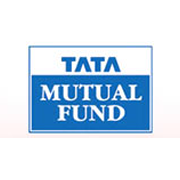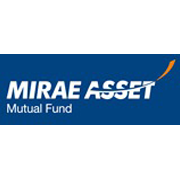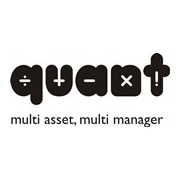
Fund categories


Arbitrage Funds


WhiteOak Capital Arbitrage Fund - Direct (G)
Equity | Arbitrage Fund
1Y returns
7.37%Min. Invest
₹500
AUM
₹735.66 Cr

Aditya Birla SL Arbitrage Fund - Dir (G)
Equity | Arbitrage Fund
1Y returns
7.18%Min. Invest
₹1,000
AUM
₹24,255.89 Cr

Tata Arbitrage Fund - Direct (G)
Equity | Arbitrage Fund
1Y returns
7.16%Min. Invest
₹5,000
AUM
₹20,106.78 Cr

ITI Arbitrage Fund - Direct (G)
Equity | Arbitrage Fund
1Y returns
7.15%Min. Invest
₹5,000
AUM
₹47.01 Cr

Invesco India Arbitrage Fund - Direct (G)
Equity | Arbitrage Fund
1Y returns
7.12%Min. Invest
₹1,000
AUM
₹27,150.96 Cr

Kotak Arbitrage Fund - Direct (G)
Equity | Arbitrage Fund
1Y returns
7.08%Min. Invest
₹100
AUM
₹72,279.21 Cr

Edelweiss Arbitrage Fund - Direct (G)
Equity | Arbitrage Fund
1Y returns
7.08%Min. Invest
₹100
AUM
₹16,687.08 Cr

Sundaram Arbitrage Fund - Direct (G)
Equity | Arbitrage Fund
1Y returns
7.08%Min. Invest
₹100
AUM
₹331.15 Cr

UTI-Arbitrage Fund - Direct (G)
Equity | Arbitrage Fund
1Y returns
7.07%Min. Invest
₹5,000
AUM
₹10,105.83 Cr

SBI Arbitrage Opportunities Fund - Direct (G)
Equity | Arbitrage Fund
1Y returns
7.04%Min. Invest
₹5,000
AUM
₹39,858.59 Cr

AXIS Arbitrage Fund - Direct (G)
Equity | Arbitrage Fund
1Y returns
7.02%Min. Invest
₹500
AUM
₹7,873.09 Cr

Bandhan Arbitrage - Direct (G)
Equity | Arbitrage Fund
1Y returns
7.00%Min. Invest
₹100
AUM
₹8,747.55 Cr

ICICI Pru Equity - Arbitrage Fund - Direct (G)
Equity | Arbitrage Fund
1Y returns
6.99%Min. Invest
₹5,000
AUM
₹32,195.64 Cr

HDFC Arbitrage Fund - Direct (G)
Equity | Arbitrage Fund
1Y returns
6.97%Min. Invest
₹100
AUM
₹23,009.16 Cr

HDFC Arbitrage Fund - WP - Direct (G)
Equity | Arbitrage Fund
1Y returns
6.97%Min. Invest
₹100
AUM
₹23,009.16 Cr

Mirae Asset Arbitrage Fund - Direct (G)
Equity | Arbitrage Fund
1Y returns
6.96%Min. Invest
₹5,000
AUM
₹3,422.28 Cr

Nippon India Arbitrage Fund - Direct (G)
Equity | Arbitrage Fund
1Y returns
6.94%Min. Invest
₹5,000
AUM
₹15,894.51 Cr

HSBC Arbitrage Fund - Direct (G)
Equity | Arbitrage Fund
1Y returns
6.92%Min. Invest
₹5,000
AUM
₹2,402.56 Cr

Baroda BNP Paribas Arbitrage Fund - Dir (G)
Equity | Arbitrage Fund
1Y returns
6.92%Min. Invest
₹5,000
AUM
₹1,279.43 Cr

DSP Arbitrage Fund - Direct (G)
Equity | Arbitrage Fund
1Y returns
6.90%Min. Invest
₹100
AUM
₹6,447.92 Cr

LIC MF Arbitrage Fund - Direct (G)
Equity | Arbitrage Fund
1Y returns
6.80%Min. Invest
₹5,000
AUM
₹288.55 Cr

PGIM India Arbitrage Fund - Direct (G)
Equity | Arbitrage Fund
1Y returns
6.78%Min. Invest
₹5,000
AUM
₹101.83 Cr

Bajaj Finserv Arbitrage Fund - Direct (G)
Equity | Arbitrage Fund
1Y returns
6.70%Min. Invest
₹500
AUM
₹1,256.94 Cr

Union Arbitrage Fund - Direct (G)
Equity | Arbitrage Fund
1Y returns
6.68%Min. Invest
₹1,000
AUM
₹295.82 Cr

Parag Parikh Arbitrage Fund - Direct (G)
Equity | Arbitrage Fund
1Y returns
6.59%Min. Invest
₹1,000
AUM
₹1,930.24 Cr

JM Arbitrage Fund - Direct (G)
Equity | Arbitrage Fund
1Y returns
6.53%Min. Invest
₹1,000
AUM
₹390.54 Cr

Bank of India Arbitrage Fund - Direct (G)
Equity | Arbitrage Fund
1Y returns
6.37%Min. Invest
₹5,000
AUM
₹43.16 Cr

NJ Arbitrage Fund - Direct (G)
Equity | Arbitrage Fund
1Y returns
6.31%Min. Invest
₹5,000
AUM
₹261.98 Cr

Mahindra Manulife Arbitrage Fund - Dir (G)
Equity | Arbitrage Fund
1Y returns
6.13%Min. Invest
₹1,000
AUM
₹84.67 Cr

Franklin India Arbitrage Fund - Direct (G)
Equity | Arbitrage Fund
1Y returns
%Min. Invest
₹5,000
AUM
₹535.44 Cr

Motilal Oswal Arbitrage Fund - Direct (G)
Equity | Arbitrage Fund
1Y returns
%Min. Invest
₹500
AUM
₹1,664.56 Cr

Quant Arbitrage Fund - Direct (G)
Equity | Arbitrage Fund
1Y returns
%Min. Invest
₹5,000
AUM
₹298.20 Cr

TRUSTMF Arbitrage Fund - Direct (G)
Equity | Arbitrage Fund
1Y returns
%Min. Invest
₹1,000
AUM
₹91.27 Cr

Samco Arbitrage Fund - Direct (G)
Equity | Arbitrage Fund
1Y returns
%Min. Invest
₹5,000
AUM
₹22.66 Cr

Old Bridge Arbitrage Fund - Direct (G)
Equity | Arbitrage Fund
1Y returns
%Min. Invest
₹5,000
AUM
₹- Cr

The Wealth Company Arbitrage Fund - Direct (G)
Equity | Arbitrage Fund
1Y returns
%Min. Invest
₹1,000
AUM
₹241.99 Cr

What are Arbitrage Funds?
Arbitrage funds are mutual funds that exploit the price differences of securities in different markets or forms. They aim to generate profits by simultaneously buying and selling the same asset in different markets to take advantage of price discrepancies.Attributes of Arbitrage Mutual Funds
Knowing attributes helps investors understand their risk-reward profile, tax benefits, and ability to profit from price differences across markets. It also helps in maintaining a relatively low risk compared to equity funds. Here are the attributes you need to note:- Low Risk: Arbitrage funds are considered low risk because they exploit market inefficiencies to generate returns. These funds lock in a risk free profit by simultaneously buying and selling the same asset in different markets. This strategy minimizes exposure to market volatility, making funds a safer investment compared to pure equity funds.
- Market Neutral: These funds are market neutral, meaning they can perform well regardless of market conditions. Whether the market is bullish or bearish, these funds can produce returns by capitalizing on price discrepancies. This makes them a stable investment option, as their performance is not directly tied to market trends.
- Short term Investments: These funds are ideal for short term investment horizons. They typically range from a few months to a year. Investors looking for a safe place to park their money for a short period can benefit from these funds' relatively stable returns. The short term nature also means that investors can quickly liquidate their holdings if needed.
- Holding Period Strategy: Arbitrage debt funds typically perform best when held for short to medium-term periods, usually ranging from 3 months to 1 year. This time frame allows the fund to capitalize on multiple arbitrage opportunities while minimizing the impact of market fluctuations. However, investors should align their holding period with personal financial goals and market conditions, as longer-term holdings may not always yield optimal results.
- Liquidity: These funds offer high liquidity due to their frequent trading activities. Investors can easily buy and sell units without significantly impacting the fund’s performance. This high liquidity ensures investors can access their money quickly. It makes funds a flexible investment option.
- Diversification: Arbitrage funds provide diversification benefits by investing in a mix of equities, derivatives, and debt instruments. This diversified approach helps in spreading risk across different asset classes. It further enhances the fund’s stability. Funds can offer more consistent returns by not relying solely on one type of investment.
How do Arbitrage Mutual Funds Work?
The arbitrage mutual fund works by buying securities in one market at a lower price. It simultaneously sells them in another market at a higher price. The fund managers exploit these price differentials to create returns. They typically invest in equities and derivatives to lock in the price differences, ensuring a risk free profit.Why Invest in Arbitrage Mutual Funds?
Investing in these funds can be beneficial due to their low risk nature and potential for steady returns. They are ideal for conservative investors looking for short term investment options. Their tax efficiency makes them an attractive choice for investors in higher tax brackets.Who Should Invest in Arbitrage Funds?
These funds suit risk-averse investors seeking stable returns with minimal market risk. They benefit those in higher tax brackets looking for tax-efficient returns compared to traditional debt investments like fixed deposits. People who are suitable to invest in arbitrage funds are:- Conservative Investors: The investors looking for low risk investment options are correct for this fund.
- Short term Investors: The option is ideal for those with a short term investment horizon.
- Tax conscious Investors: The choice is beneficial for those in higher tax brackets due to tax efficiency.
- Market Neutral Investors: It is suitable for those who want to avoid market volatility.
Things to Note About While Investing in Arbitrage Mutual Fund Schemes
Understanding these funds is crucial as they involve complex market strategies to profit from price differences. Knowing their mechanics, risks, tax implications, and market dependencies helps investors decide whether they suit their investment goals and risk tolerance. Note the points below to make an investment in arbitrage fund schemes.- Expense Ratio:
- Fund Manager’s Expertise:
- Market Conditions:
- Investment Horizon:
- Market Timing Considerations:
- Fund Size:



























